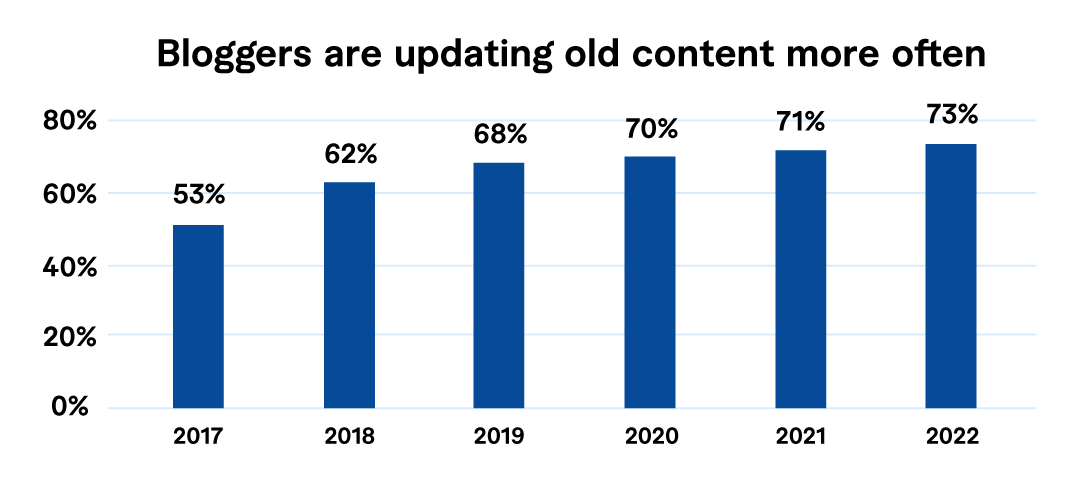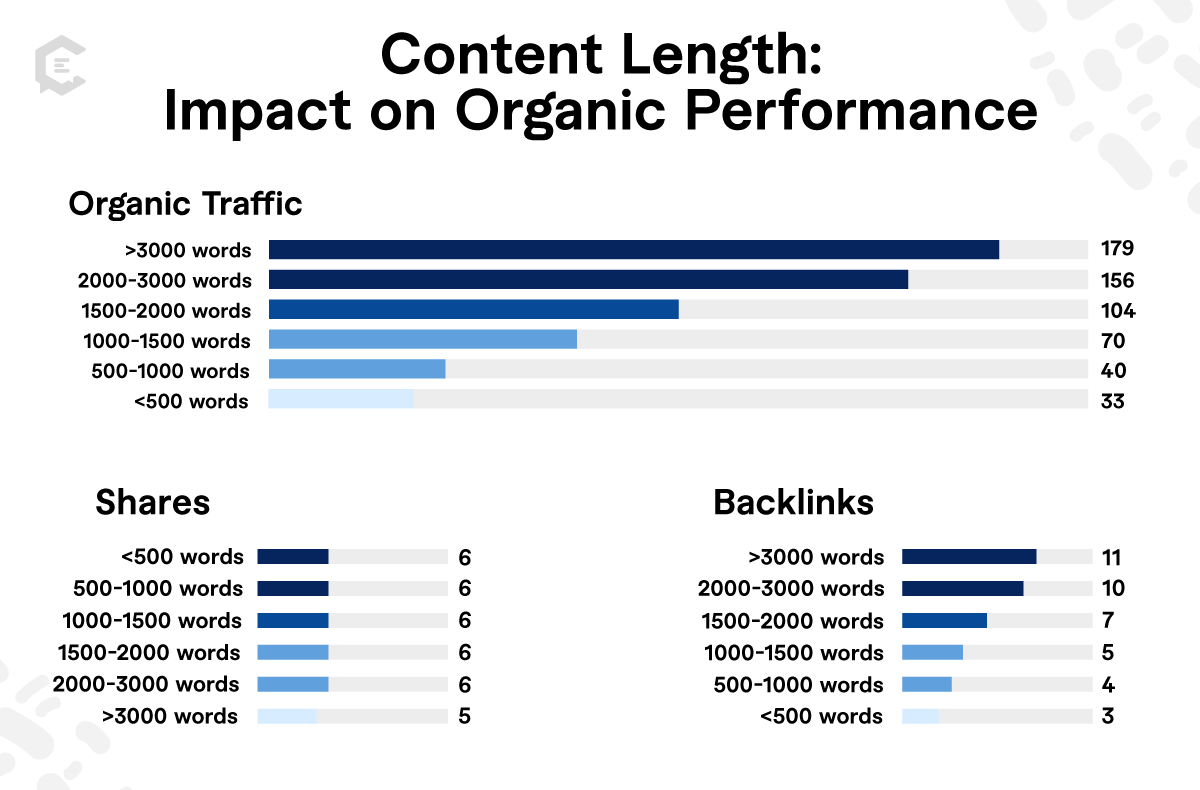Blogging has become an integral part of online marketing and branding for individuals, businesses, and organizations. Blogs are powerful tools. They allow you to communicate with your audience, share your expertise, and establish your online presence.
But many questions come up when it comes to blogging. How many posts should be published? How often? How many blogs a month for SEO? Should I post regularly? Should I update the blogs?
Read on for answers to the above.

How many blog posts per week?
You may be wondering, “How often should I blog?” This is one of the most common questions asked by bloggers. The answer depends on various factors, including industry or niche, audience, blogging goals, and available resources.
How often should you blog? In general, publishing one or two high-quality blog posts per week is a good starting point. And you may want to put up even more. According to a study by Orbit Media, bloggers who publish between two and six times each week are 50% more likely to achieve positive results.
At the same time, quality is always better than quantity. Be consistent in your timing. Also, be sure you’re producing valuable content that resonates with your audience.
How often should I refresh my blog content?
In addition to regular posting, it’s crucial to keep your existing content fresh and up-to-date. Regular updates keep your readers engaged while improving your search engine rankings. So, how often should you update your blog content?
There’s no fixed answer to this question. Neither Google nor other search engines provide specific numbers regarding the SEO impact of blog updates. Even so, plan to include content refreshes in your marketing strategy. This can include adding new information, videos, or images. A refresh could also involve rewrites for higher engagement. Those who update previous posts are 2.8% more likely to see good results.
Should I post all my blogs at once?
As you try to figure out how many blog posts per month work best for you, it’s tempting to publish all your blog posts at once. However, this is not an effective strategy for a few different reasons.
Publishing multiple blog posts at the same time once can negatively affect your SEO ranking. Google likes to see “fresh, new content.” So publishing a lot at one time might not help your SEO as much as publishing singly. Also, if you publish everything at once and take a break, this could signal site inactivity. The search engines may react accordingly, resulting in a lower ranking.
In addition, publishing blog posts at once can also lead to a high bounce rate. This refers to the percentage of visitors who leave your website after only viewing one page. This might happen because visitors might not have time to read all of your new information. A high bounce rate can signal to search engines that your website isn’t providing valuable content. This can also hurt your SEO.
What is the ideal length of a blog post?
The length of a blog post is another crucial factor that can make it more or less effective. A short post may not provide enough info for the reader, leaving them without a solution to their question or problem. This means they’re less likely to share the post with others or engage with your site. This could reduce the likelihood of building a loyal audience.
Statistics show that articles totaling 2,000 words or more generate more organic traffic and get more backlinks than shorter content. However, it’s key to keep in mind that the ideal length may vary depending on your audience and goals. Some audiences prefer longer posts that provide all of the info they need on a certain topic. Others might prefer something that’s substantial, yet doesn’t take too long to read.
Regardless of length, be sure your content is engaging, informative, and valuable to your readers. This is the case, whether you post a 500-word blog, or a 3,000-word article. But be wary when creating short blog posts.
You might assume that uploading 150-word blog posts is a quick and easy way to get content out there. But that minimalist content likely lacks information your users want. This can hurt search engine performance, meaning fewer people know about your post. The result? A decrease in traffic to your website falls.
Is it important to post to a blog regularly?
Yes, it’s essential to post to your blog regularly to maintain an active online presence and engage with your audience. Also, when you post regularly, you give search engines more opportunities to crawl and index your site. This can increase your visibility and attract more traffic.
On the other hand, infrequent posting can have a negative effect.
For example, let’s say you run a fashion blog and you typically post new content twice a week. However, you suddenly stop posting for a month due to other commitments. During this time, your regular readers may start to lose interest and look for new sources of information and inspiration. As a result, your website traffic may start to decrease, and your search engine rankings may also take a hit.
In addition to losing readership, irregular posting can also impact your website’s authority and credibility. Website authority refers to the level of trust and credibility a website has with search engines and users. Search engines prioritize sites that regularly post relevant content. This indicates that admins actively maintain and update the site. So posting on a schedule is important, whether weekly or monthly.
Strike a Balance With Your Blog Frequency
Blogging is an essential component of online marketing and branding. Creating a successful strategy involves factoring in the frequency, length, and quality of your content. Consistently publishing high-quality content is crucial to establishing an active online presence, building trust with your readers, and improving search engine rankings. Updating existing content and not publishing all blog posts at once are also key to maintaining reader engagement and a positive SEO ranking. By understanding these important elements of successful blogging, you can develop an effective strategy and be a hit with your target audience.
Putting out consistent quality content is a heavy lift for brands. If you need help with content production, we’re more than able to get the job done. Connect with us today!






